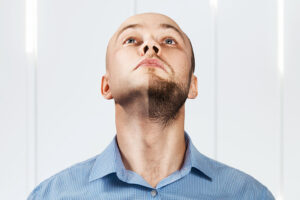VIP Stay at Mandarin Grove Health and Wellness Retreat
FACIAL HAIR TRANSPLANT
OPERATION PACKAGE DETAILS
Why Revitalize In Turkey?
With 18 years of experience in the medical tourism field, we have built a reputation for excellence and trust. What sets us apart is our exceptional aftercare service, provided exclusively at our wellness retreat, Mandarin Grove. Unlike any other clinic, we offer a tranquil environment at Mandarin Grove, tailored to the needs of our patients. From comfortable accommodation to 24/7 care, we ensure your well-being and recovery.
We endeavour to offer exclusive operation packages where patients can enjoy the pure luxury of recuperating at Mandarin Grove with professional after-care and have the peace of mind of knowing that they get the best medical support.
Facial Hair Transplant in Turkey
In recent years, the demand for both hair transplant and beard transplant has made these two procedures the most preferred cosmetic surgery procedures. The sector is highly developed and facial hair transplantation is currently performed using the most modern aesthetic surgery techniques. Thanks to the FUE technique, beard and mustache transplants are performed under local anesthesia.
What is FUE Facial Hair Transplant?
FUE facial hair transplant does not cause an incision on the face. FUE beard transplant, which is a painless treatment method, is the best choice for men who want to increase beard density. Grafts taken with the FUE technique are transplanted at certain points on the face to thicken the shapeless and sparse beards or to add a beard to the face with no beard. In facial hair transplantation, goals such as mustache contour, improvement of beard growth, increasing beard density, increasing mustache density and increasing facial hair can be determined.
Beard & Mustache Transplant Procedure
By consulting multiple times with your cosmetic surgeon prior to the transplant, you will obtain a facial hair transplant strategy tailored to your situation. Your surgeon will tell you what you should and shouldn’t do before and after the transplant. During the beard transplantation process, the grafts in the occipital crown region of the nape are taken one by one without leaving any traces with the follicular extraction technique.
These hairs, which do not shed due to their genetic structure, are carefully transplanted to areas with insufficient hair by your surgeon. Facial hair transplant performed under local anesthesia does not cause the patient to feel pain.
Post-Surgery Recovery Process
A low level of pain is felt for a week to 10 days after beard transplant surgery. In addition, you may observe bruising and swelling on your face. When you apply the care techniques recommended by your surgeon, the grafts will be strongly attached to your skin. You should wait 6 to 9 months after the surgery to see the final results.
Is Facial Hair Transplant Permanent?
Facial hair transplant is currently the most permanent solution for those who want to increase the density of beard and mustache on their face. The grafts taken from your neck are planted in the beard and mustache areas of your face. Although these hair strands are thin at first, as you shave the beard and mustache, the strands will grow faster and become thicker. This allows you to achieve permanent results and natural appearance.
When to Start Shaving After Beard Transplant?
After the facial hair transplant operation, you should wait about a month to start shaving. After this period, it is appropriate to start shortening the beards to at least 3-4mm. You should definitely not shave with a razor in the first 6 months after the operation. You should shave very carefully for the first 6 months to prevent damage to the transplanted hair follicles.
The aim of this article is to give you a general information about the surgical intervention in question. You need to make more research about possible complications and risks of this selected procedure in order to make an informed decision. Please note that complications occur more frequently with patients who are obese, smoke, and have a history or lung or other chronic underlying medical conditions.
Smokers are recognized to have a significantly higher risk of post operative wound healing problems with a subsequently higher potential of infection as well as operative and post operative bleeding. Patients should discontinue smoking for two weeks before and two weeks after surgery. Although it helps to stop smoking before and after surgery, this does not completely eliminate the increased risks resulting from long term smoking. Smoking also has a long term adverse effect on the skin and ageing process.


